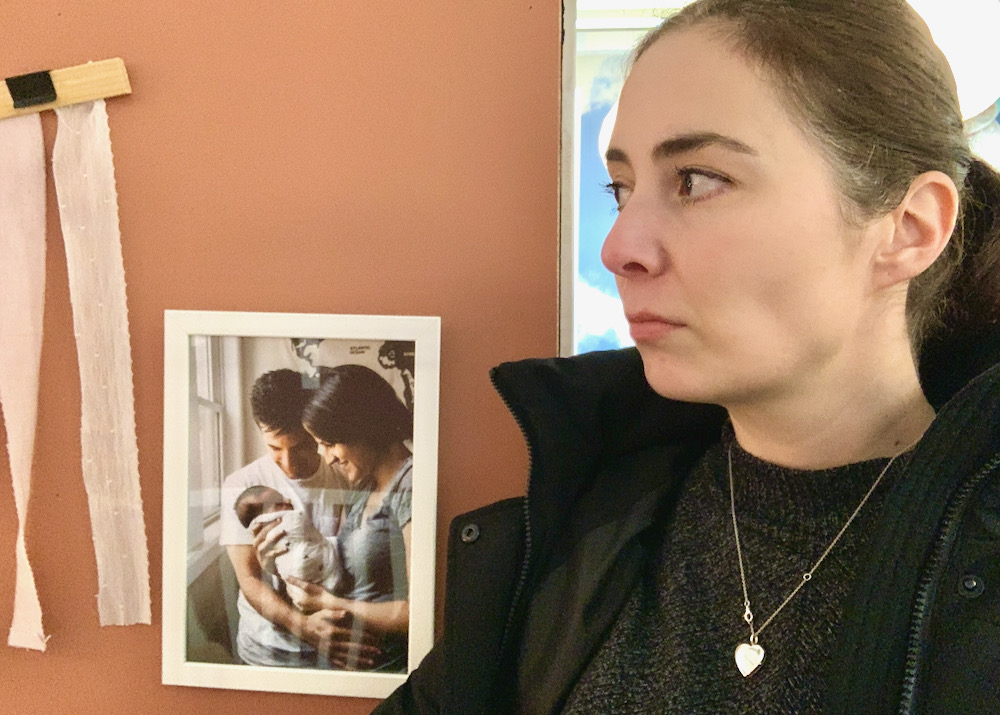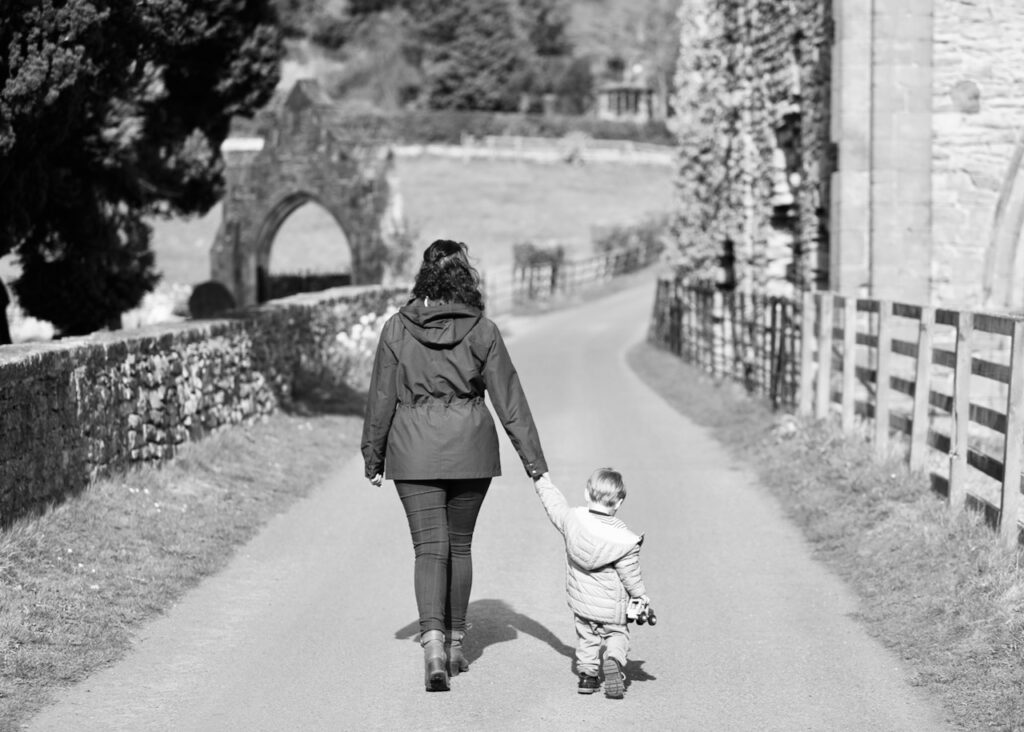Secondary Infertility: Facing the Barren Reality of Premature Ovarian Insufficiency
Years of unsuccessful attempts to fall pregnant led to fertility investigation. What was causing our secondary infertility? I thought I’d need a simple fix – I wasn’t prepared for the barren reality.

For so long, having kids never interested me. I never imagined myself being a mum, so I didn’t pursue it. Then my Dad died. By now, approaching my mid-thirties, I found myself questioning my life: what was I doing? Realising the crisis of my biological clock ticking, the doubts crept in. Was this really how I felt? Would I regret not having kids?
So my long term fiancé and I got married and we had a baby. Our beautiful rainbow baby who brought hope to fruition and a new way of life.
My mind had done a full 360 — this was what I wanted. Being a mum was it.
But now my fertility is a different picture. And I never banked on my choice for motherhood not being my decision at all.
Our little man’s impending fifth birthday is a bittersweet milestone that means not only is my baby growing up (fast) it marks four years into trying for baby number two where I’m facing up to the barren reality of secondary infertility: a more palatable way of saying ‘we’re lucky we’ve got one child because for one reason or another that’s likely our lot.’
How it Started
Getting pregnant with Reuben was easy, yet this time round nothing seemed to be happening.
Using a fertility app I became familiar with my cycle; I knew when my period was due, and what day I was estimated to ovulate. I learnt to listen to my body, know the cues, getting the timing spot on. And then there were the fertility friendly gels, and the implements and the positions, all of which made no impact.
After we’d been trying to conceive for several months, I began looking into what we should do.
According to the NHS website, you should seek medical advice when you’ve been trying for over a year. However, women over 36 are advised to get checked out after six months. That was me, 36, so I knew we should start looking into what may be going on.
Pre-pandemic it was pretty easy getting a GP appointment so we went as a couple to cover all bases. After all, conceiving isn’t just one person’s job. The doctor however didn’t see any cause for concern and was quite laidback about it; we were healthy, we just needed to give it a bit more time and dedication.
A year on though, I still wasn’t pregnant.
We went back to the GP and this time things felt like they were moving in the right direction. I had tests arranged to see if I was ovulating, and the when that came back okay, Sean was sent for tests to check sperm health. So over the course of several months we were back and forth to the hospital dropping off samples, timing everything to the day and minute and rushing to the lab within the hour while I kept the sample tucked in my bra so it didn’t drop temperature.
Testing, waiting, going for exams and keeping on trying to conceive in the meantime is so time heavy and energy exhausting that before you know it you’re another year older and still non-the-wiser.
Getting Referred
Eventually we managed to get referred on to a fertility specialist at the university hospital. There was talk about possible interventions such as IVF, which we soon found out we wouldn’t have entitlement for on the NHS as we already had a child. We’d have to go private, which the consultant we were coming under would offer us treatment for if the NHS didn’t cover it.
Of course, 2020 came around and the pandemic hit, so anything non-covid related came to a standstill.
Fertility clinics had to postpone appointments and close, so as our efforts to conceive continued to flounder month upon month, there was nothing we could do.
It wasn’t til 2021 that we finally got an appointment through to see the consultant. It felt fairly positive; we weren’t at the IVF stage so with further investigation pregnancy was still plausible.
Looking at my blood results said otherwise. The consultant expressed concern that my FSH (follicle stimulating hormone) level was “high for my age”, so he ordered my bloods to be done again before we left the clinic. And I had a transvaginal exam booked to seek signs of endometriosis and to count the follicles in my ovaries. Even though male infertility doesn’t get much attention by fertility clinics, my husband was considered too. His sperm samples were requested again to be seen by the IVF clinicians more specialised in the field. Slowly but surely we were making headway.
The Results
Four months later, the outlook was clearer, though not as bright as we’d hoped for. This time we didn’t see the consultant, instead a member of the team informed us what our results indicated. While my husband’s advice to make lifestyle changes to improve his sperm health was something to positively work with, my diagnosis was a roadblock.
My scan results showed I have few eggs left, and that combined with my bloods meant one thing: Premature Ovarian Insufficiency. Or to quote the doctor, I have a “severely diminished ovarian reserve”.
Given that information, I’ve come away understanding it means I’m likely in peri-menopause — the phase that marks the end of a woman’s fertility. IVF therefore was not recommended, and so we were both discharged from the clinic.
So that was a blow to the system. I’ve been trying to mentally process what my diagnosis has meant and it has been tough. I don’t stand much of a chance becoming pregnant again and it feels like the cruelest joke.
It is so unfair!
I genuinely thought something else, something easily fixable would be found as the culprit for our problem. I mistakenly thought my regular periods meant I had healthy eggs. I thought that because my periods started later than my sisters’ that I’d have extra time. How wrong was I.

Looking Forward
Secondary infertility has shadowed my motherhood for the past five years, as I’ve realised how much I love being a mum. I’ve kept the baby clothes. All of them. And the baby bath, and the changing table still stands in the bathroom. The bubble has been burst but I cannot accept it as gospel.
I have lost some hope. I’m hurting. But I still stay hopeful. I still imagine ‘what if’ every month, longing for the next period to never arrive, not for the wrong reason.
There’s just one silver thread that I hang on to, which the doctor said on that last appointment.
“It will take a miracle”.
I smiled and said well, we are praying for that! And it’s still true. I’m an absolute painful open wound that’s bled a lot of my hope dry, but I know prayer is my last resort as it is our first.
I try to remind myself that God is good and does what’s best for us, what’s best for me. And if He healed me before and answered prayer to have a baby before, is He not great enough to do it again?
I leave my mess and confusion in God’s hands now, and I think I’ve been finding solace in that. My condition is out of my hands, therefore nothing I do can change it. It really does need to be as simple as that because I can’t face the alternative.
I may have just the one child, for now or forever, but Reuben is my biggest blessing who gives me so much joy. I adore everything he is and all that his arrival gave me.
So as difficult as the road ahead goes, as much as my heart aches, I need to be at peace with my future, whether my family means one child or many.
2 Comments
Leave a Reply
You must be logged in to post a comment.

Daniel
February 22, 2022 at 2:38 pmHi Becky,
You are in my daily prayers, hoping for a very happy outcome to this life situation. Sometimes, God has other plans for us, though, where happiness lies, hidden from view.
Sincerely,
D
Becky Connolly
February 22, 2022 at 9:43 pmThank you for this, I do appreciate it.
Becky x